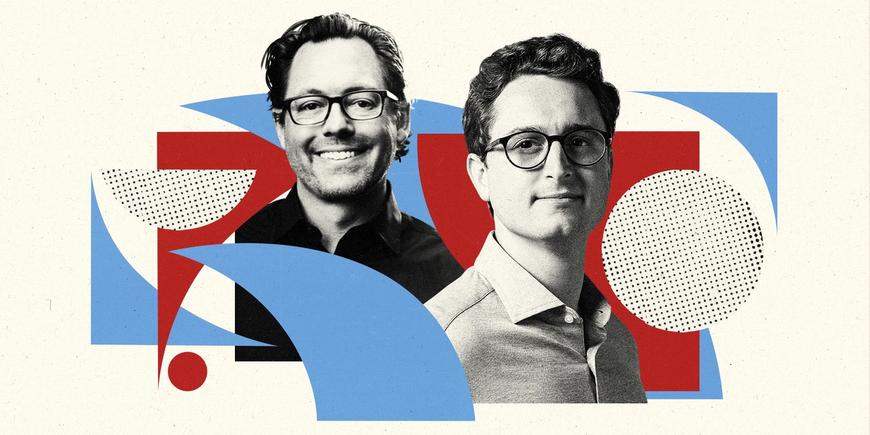Gregor Watson on Why SFR PropTech Is Still in the Early Innings
In the last 30 years, the market cap for REITs grew from $16 billion to $1.5 trillion. Here’s why a leader in the field still sees much more room for growth.

Roofstock Cofounder Gregor Watson is a real estate entrepreneur and PropTech visionary who has paved the way for hundreds of founders in the Single Family Rental and real estate technology space. While he began his career as a professional baseball player, Gregor’s stronger skillset has been scaling businesses. A restaurant Founder turned OG institutional SFR investor, Gregor and his team previously managed over $2 billion worth of real estate and still maintain a portfolio of 4,000 today. In addition to Roofstock ($1.9 billion valuation and has purchased and managed 30k homes), Gregor has helped cofound companies such as Lessen ($2 billion valuation), Zibo, Juice, and Dwell Finance. Today, Gregor spends most of his time running 1Sharpe Capital, a $2 billion real estate investment firm that invests in real estate credit, private equity, PropTech, and fintech ventures.
A couple of weeks ago, I sat down with Gregor to discuss pain points in the real estate business, how those led to his own companies, and his hopes to “create a more liquid, transparent marketplace.
I saw you were at McKinley Partners and then 643 Capital Management. What were those companies and how did they ultimately lead to your journey into the startup world?
The quick background is I've always been an entrepreneur. I started a restaurant business and then realized pretty quickly that the person making all the money was the landlord. I was working all day and not making any money. So I said, "Okay, I want to get into real estate."
I started getting into it and ended up finding a piece of property that had been listed for a long time. I said, "Okay, I bet I can sell this thing." I went to the Yellowpages and talked to the broker, I said, "Hey, if I sell it, will you pay me?" He said, "Sure," so I started talking to home builders and architects.
This is actually how I started McKinley Partners. I met two guys through that process that were experts in land entitlement. I teamed up with them and started McKinley Partners.
We raised a fund and started McKinley Partners with the idea of focusing on land development throughout the coastal markets of California. That was in 2007. Nothing was making sense when we were looking at buying land, so we didn't buy anything. Then, 2008 happens and we were in a position to buy. So we started buying these master plan communities and that was the first real success I had in real estate. We were buying things for pennies on the dollar, but it was a scary time. It was one of those times when you're buying land and you're not sure if you'll ever be able to sell it.
It takes a lot of belief, and we had some really good family office investors that gave us valuable advice during that time. I started seeing the opportunity to buy distressed single-family homes instead of just the land. We did that and I left McKinley to go all in.
I started 643 and became one of the largest owners of homes in the U.S., I evolved from there and started other businesses.
What role did 643 play in your ability to scale and buy up all those homes?
When we started, we were printing out auction lists, looking at them, highlighting things, and putting them into a spreadsheet. There was no way we were going to scale by doing things the way traditional real estate had always done.
What I liked about what we started is that it felt almost like day trading. When I started my career in real estate doing land entitlements, it's like watching paint dry. It takes forever. That pace is pretty typical in real estate and you benefit a lot of times from waiting to make a decision. You get more information, you stick to it a little bit longer, and then when you're forced to do something, you do it.
In the housing crash, things were happening so quickly and on such a big scale that you had to build systems. We started building some pretty interesting databases. Then we started using tools like Google Earth to just try and figure out where the high-tension power lines were, where the gas stations were, and sorting through which homes we wanted to focus on.
What was it like to go from the physical world of buying and renovating homes to going into the tech world with Roofstock? How did you end up coming up with the idea?
I came up with the idea because I was dealing with pain in my own portfolio. We had 10,000 houses across the United States. I wanted to sell some of them and re-deploy some of that capital to other markets. What I realized was the best buyer for those homes wasn't necessarily somebody living down the street. The old way of doing things didn't make sense.
The investors wanted to know what was the rent, what kind of CapEx needed to be done, and what are the assumptions on growth. If we could provide all of that information and put it online, I could create a more liquid market and have much lower transaction costs. I was purely trying to solve my own issues.
I started talking to people in the industry and they said, "If you did the inspections and you gave us all the information on the renter, we don't need to see the home. We'll buy it." We started trading data tapes that way, and then putting it online was a whole other world. There were people in Hong Kong, London, and New York all looking at these assets and buying them.
The goal from day one was to create a more liquid, transparent marketplace. When I met Gary, the Cofounder of Roofstock, he was running a public company. I pitched him on this idea, and he said, "Absolutely, we'd use that. That sounds amazing. Can I invest?" I said, "Yes, invest."
I had started a credit business a couple of years before, and the week I got the term sheet from Khosla to back me on Roofstock, I also got an offer from Blackstone to buy my credit business. It was one of these things where I'm like "Okay, I’m either going to get paid and go to Blackstone or try another crazy startup idea."
I still really wanted to build Roofstock. I talked to David Weiden over at Khosla and he said "Look, if you can get Gary Beasley to be the Cofounder and CEO, then the term sheet's good."
Now I've got to convince a guy who's a CEO of a public company to leave and start this crazy idea, and so I worked on him for a while. I would usually call him right before earnings calls and tell him how much fun we were going to have building this business. He finally decided to join and we have built it together since then.
How much of that business now sells homes to institutional buyers?
A big percentage has always been the institutional buyer. This could be high-net-worth individuals, family offices, or institutions. What we found was the retail buyer only has so much capital. They may come to the platform with $50,000, and the best approach for them isn't to buy a single home, it's probably to buy into a pool of homes.
We've created Roofstock and other products that allow people to come in and get exposure to a pool of assets and still get all the benefits of owning a house.
What did you see play out in terms of prices and return profiles?
The whole industry is still in the early innings. When we started, no one had ever done it at scale. There was no financing available. Then financing came in and the securitization market happened. Then there were public companies. Now, you saw what happened when the REIT laws changed in the 1990s, it went from a hundred million market cap to over a hundred billion in market cap. That’s been 30 years of growth. So we're still in the early innings of single-family rental.
Once Roofstock was at scale, people realized the transaction costs in exit prices could happen for one to two percent. So that had a really big impact on the underwriting going on in transactions. It also created the ability to trade more frequently. People could buy stabilized platforms or portfolios, and then sell them within 24 to 36 months. Historically, that whole period took closer to seven years.
I'm sure that gave institutional lenders a little bit more confidence in the asset class, right?
That, and we had a lot more data. We mapped every home in the U.S. and were able to build a platform that allows you to sell a thousand homes, access the likely buyer for subsets of those homes, and base it on what homes they own, which markets, and how close they are to what you're trying to sell. We can optimize pricing that way too.
What do you think about PropTech?
It’s great for marketing, but at the end of the day, if you're a venture investor, you're investing in technology companies. We happen to focus on the BuiltWorld, but that's a very broad segment. I think the big change that we've seen over the last 24 months was the difference between private equity, venture, and a real technology company. What should be valued on revenue and what should be valued on EBITDA?
PropTech's been around for a long time. You had Zillow, you had some of the different data companies corelogic, and then you had this new batch of PropTech that started. I think the venture community just got enamored with the growth of revenue and they lost track of what was going on with the margins.
What are the most common landmines you've seen with PropTech companies?
A couple of things. Real estate is a relationship-driven business. You need people that have a great reputation and who know the right people to open those doors. On the other side, you need someone from the tech industry that really understands what it means to build high-growth tech startups. What are some of the things that we need to make sure are a part of our ethos and the DNA of our business, and how are we going to recruit world-class people to join this new company?
I think that one of the mistakes people make is they think it's a consumer company and it's going to happen quickly.
We've seen a real change in the way big investors are looking at technology and looking at startups. Now, instead of it being annoying and not that interesting, it’s now viewed as a competitive advantage. That adoption is becoming faster and people are starting to get worried that they're going to get lapped if they don't harness the data that they already have, or if they don't figure out how to optimize revenue on their buildings, or how to make the clients happier.
So all that's happening and the CEOs are younger, so you're seeing this change in leadership where they embrace technology in all aspects of their life. I expect that to accelerate.
